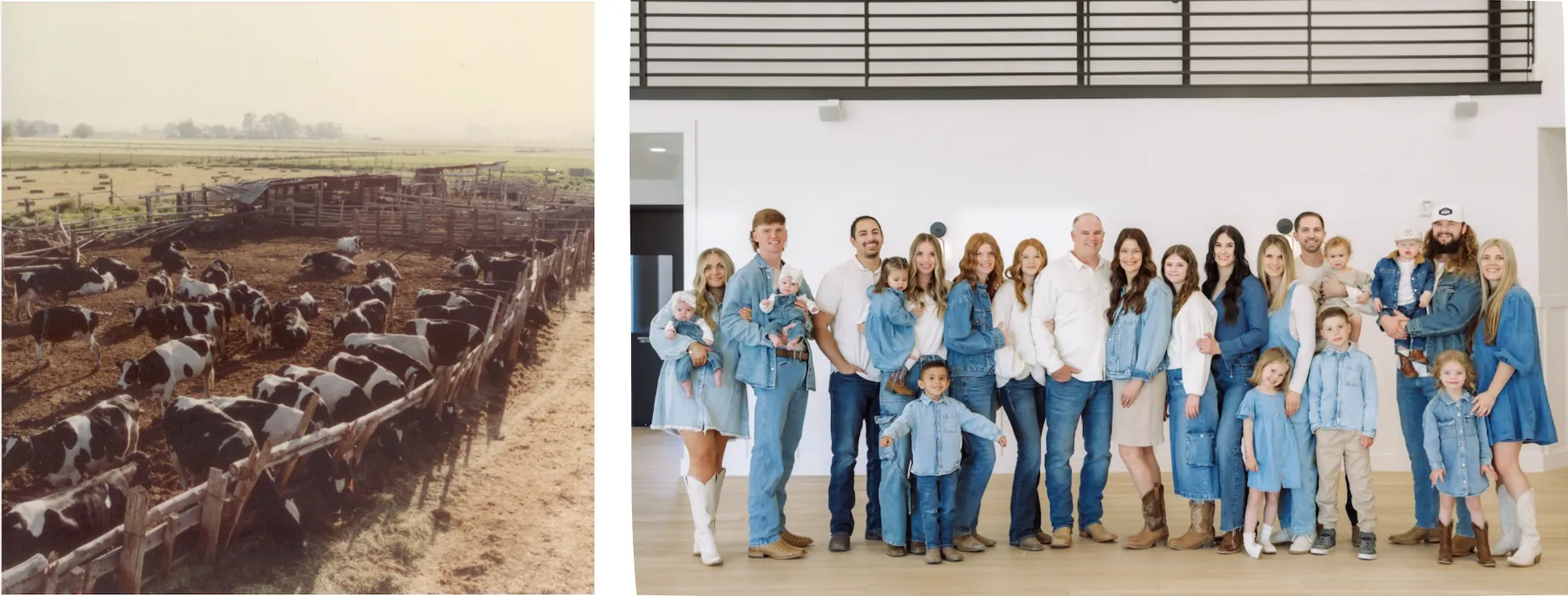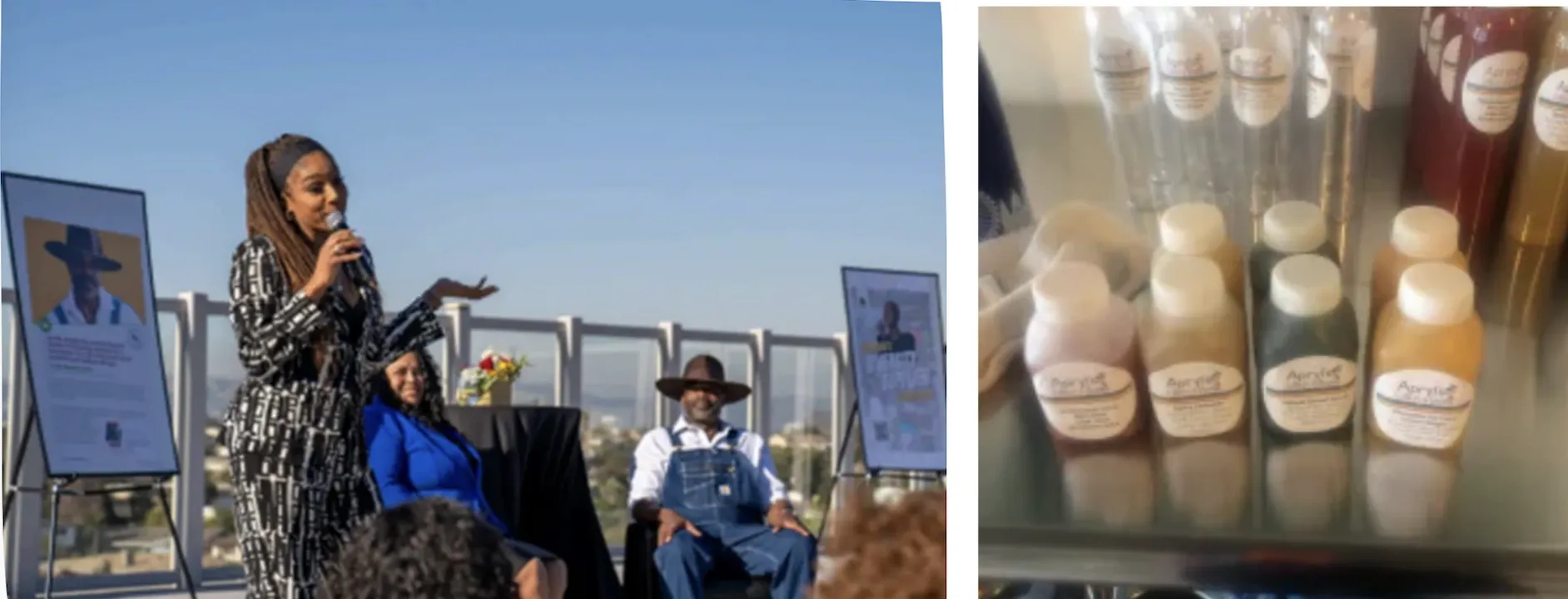
Southwest Food Business Center seeks new path to keep small farms and food businesses growing
Apryl Sims was excited to sell 100 bottles of her cold-pressed, fruit and vegetable-based juices to a local store in South Los Angeles. Sims, the owner of Apryl’s Life in a Bottle, received marketing advice from Diaspora Groceries, which helped complete a business plan and refine her product pitch to bring vitamin-rich beverages to urban food deserts.
With support from the U.S. Department of Agriculture Southwest Regional Food Business Center, Diaspora Groceries has been offering technical assistance to Los Angeles-area food entrepreneurs to launch their small businesses.
The dairy farming Smith family in rural Utah worked closely with Utah State University to learn how to navigate regulations, access grant opportunities, and expand agritourism and local food offerings to preserve Oliver’s Place, their six-generation family farm, and adapt to changing markets.
These are just two examples of how small food and farm businesses receive support from the USDA Southwest Regional Food Business Center and its 21 partners across California, Arizona, Nevada and Utah.
The Southwest Regional Food Business Center, led by University of California Agriculture and Natural Resources, is one of 12 food business centers across the country. These centers were launched in 2023 with USDA seed funding to serve local food and farm entrepreneurs through on-the-ground learning opportunities.
“Our team has supported nearly 2,000 individuals and over 1,000 farm and food businesses in just two years, and we were ready to deliver 100 grants totaling $4.2 million,” said Tracy Celio, Southwest Regional Food Business Center program manager. “Now, only a fraction – around $1 million – will reach the hands of producers.”

Closing Food Business Center Sept. 15
After two years of transformative work benefiting small, local farm and food businesses, the USDA Agricultural Marketing Service announced its intention to terminate the national initiative designed to strengthen small farms, local food enterprises, and regional food supply chains.
The Southwest Regional Food Business Center will maintain regular operations through Sept. 15, 2025, and develop a transition plan that includes limited staffing to oversee 50 to 60 Business Builder grant awards through May 2026. No further funding will be provided for subsequent rounds of the Business Builder grant program, which aimed to build capacity for small and mid-sized food and farm businesses including producers, processors, aggregators, distributors and other businesses within the food supply chain. All other activities will end in September instead of July 2028 as originally planned.
Strengthening the food supply for national security
The centers strengthen regional businesses by offering supply chain infrastructure, such as delivery logistics, food processing equipment and financing.
Regional Food Business Centers worked to build stronger food-supply networks for everyday health and wellness and greater resilience to weather emergencies and the kind of economic disruption the country experienced with empty grocery shelves during the COVID-19 pandemic.
“In collaboration with partners across the region, we have helped farm and food businesses find new markets for their local products, increase their revenues, improve distribution models and learn business management skills,” Celio said.
The Southwest Center is led by UC ANR, in collaboration with a Leadership Council made up of key partners from Local First Arizona, University of Arizona, Arizona Department of Agriculture, UC Santa Cruz Center for Agroecology, California Department of Food and Agriculture, Occidental College, Valley Vision, University of Nevada, Reno, Nevada Department of Agriculture, Utah Department of Agriculture and Food, and Utah State University.
In light of this major change in service, the Leadership Council is actively exploring options to sustain the center’s collaborative network to support small and mid-size food and farm enterprises – whether through new funding sources or independent partnerships.
“We are deeply grateful for the commitment and dedication to our regions’ small farmers demonstrated by our center partners, and the incredible local farms and food businesses throughout the region,” said Celio.
To learn more about the Southwest Regional Food Business Center, visit www.swfoodbiz.org.

